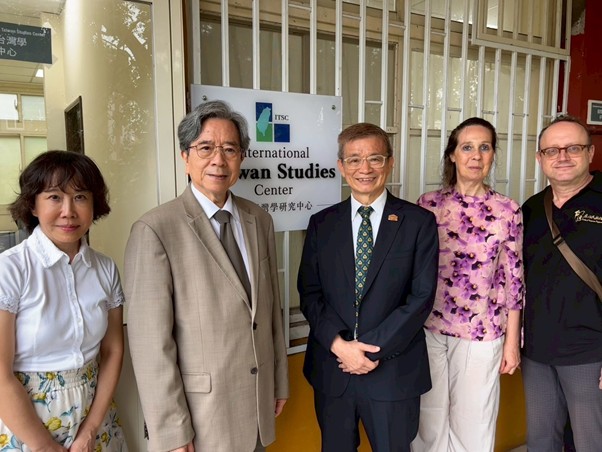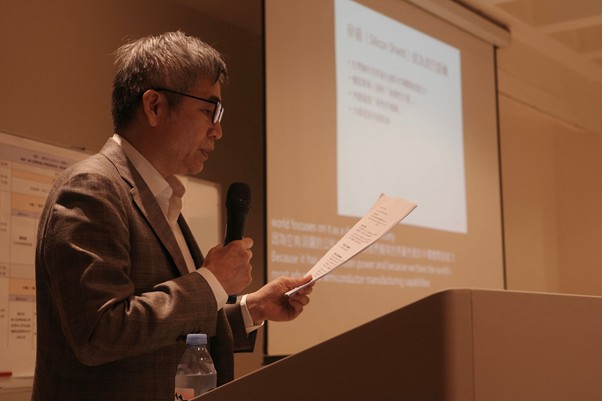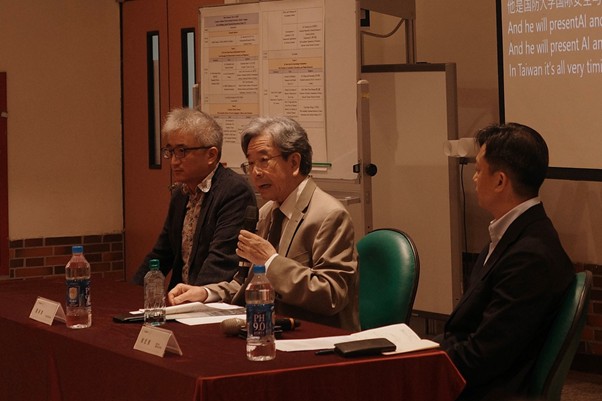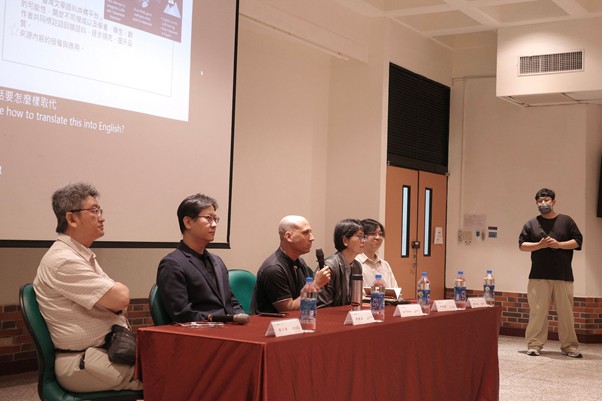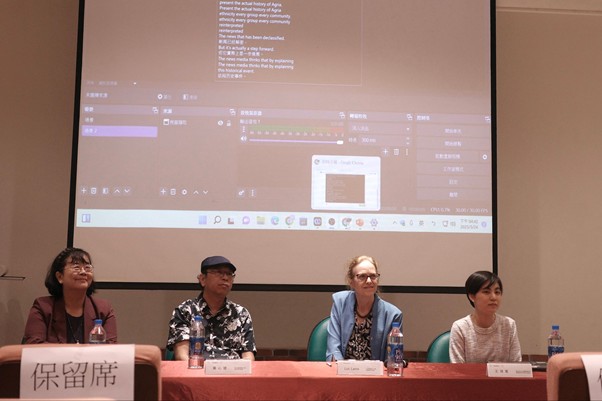The AI and Taiwan Studies Forum, organized by NTNU’s International Taiwan Studies Center and co-organized by the International Journal of Taiwan Studies, was held on May 24th at NTNU. An unveiling ceremony for the ITSC Project Office was also held on the day of the Forum, led by Executive Director Nikky Lin and Director Ann Heylen. Besides NTNU’s President Wu Cheng-Chih (吳正己), Senior Advisor to the President of Taiwan, Dr. Hsiao Hsin-huang (蕭新煌), and Research Associate at the University of London SOAS Centre of Taiwan Studies, Ming-yeh Tsai Rawnsley (蔡明燁), scholars from fourteen countries, including the US, UK, Japan, and Canada, were also in attendance.
Established in 2009, the International Taiwan Studies Center has organized many multinational academic conferences and promoted all kinds of international research exchanges and projects. Its goal in this forum was to promote discussion of contemporary issues while also building the basic foundational theory and interdisciplinary applications of Taiwan Studies. This forum brought together interdisciplinary experts and key players in both AI development and Taiwan Studies to discuss applications of AI in regards to democratic resilience, education, cultural preservation, new media art, and more, as well as the possibilities AI brings to the field of Taiwan Studies itself.
Distinguished Research Fellow Wu Jieh-min (吳介民) of Academia Sinica launched the Forum with his keynote speech, “Global Taiwan: A Silicon Shield 2.0 Initiative,” which delved into regional politics, examining Taiwan’s critical position in the global chip supply chain and concluding with a call for “making ‘Global Taiwan’ participant capable of contributing to the world, and a resilient international entity that binds democratic countries together.”
Following this was the first panel, titled “AI on the Front Lines of Information Security: New Strategies for Democracies in Security and Diplomacy.” Founder of Taiwan AI Labs Ethan Tu (杜奕瑾) explained that Taiwan is an important reference in global cognitive and information warfare operations, and nations around the world study Taiwan’s responses to these operations. Large language models (LLMs) and multimodal analysis can be used to effectively expose foreign interference in Taiwan’s information space; these are a new solution for democratic countries looking to consolidate their information resilience. Associate Professor Yau Hon-min (姚宏旻), Director of the Graduate Institute of International Security at National Defense University, discussed how AI can comprehensively improve national security. As digital technology has advanced, Taiwan’s economic resilience, social trust, and strategic autonomy have all developed alongside it.
The second panel, “AI Knows About Taiwan: The Generative Future of Taiwan’s National Local Languages, Culture, and Literature,” showcased the applications and potential of AI in cultural fields. In recent years, Professor Liao Yuan-fu (廖元甫), Director of National Yang Ming Chiao Tung University’s Institute of Artificial Intelligence Innovation, has been committed to the development of open-source language corpora and LLMs. Currently, AIs can recognize several different languages of Taiwan, which shows the communications value that AI-enabled voice technology has in Taiwan’s linguistically diverse society. AI is obviously not just a new technology, but a force that can be harnessed in education and communication.
At lunchtime, the unveiling ceremony for the International Taiwan Studies Center Project Office was held, attended by most Forum guests and many noted figures from the field of Taiwan Studies, who offered their congratulations and best wishes on this new milestone for the organization.
The third panel, “AI Intervenes in Knowledge Production: New Frontiers in Academics, Education, and Media Research,” discussed how AI can revolutionize the academic and media ecosystems. Huang Hsin-Chien (黃心健), new media artist and Distinguished Professor at NTNU’s Department of Design, introduced how he uses AI and VR technology to adapt memories and trauma into immersive narrative spaces, taking audiences on a journey of exploration through their own lives and various social issues. Huang brought up the role AI can play in the mutual interactions between artist and audience, and proposed a “metaverse” design concept for Taiwan’s culture.
Nikky Lin, Executive Director of ITSC, said that the inspiration for this forum was the revolution in how we approach knowledge, triggered by the rise of AI. As an interdisciplinary, boundary-breaking field, Taiwan Studies must be forward-thinking, embracing emerging trends and exploring new ways of responding to and interacting with the digital revolution and the changing international situation. The International Journal of Taiwan Studies also hopes to build on the success of this forum with a call for papers that explore the effects of AI while also promoting Taiwan Studies.
The International Taiwan Studies Center will continue to integrate domestic and international research resources, promote the melding of Taiwan Studies with global technological development, bring together transnational academic communities, and work to build a Taiwan Studies field that supports intellectual democracy and cultural resilience.
